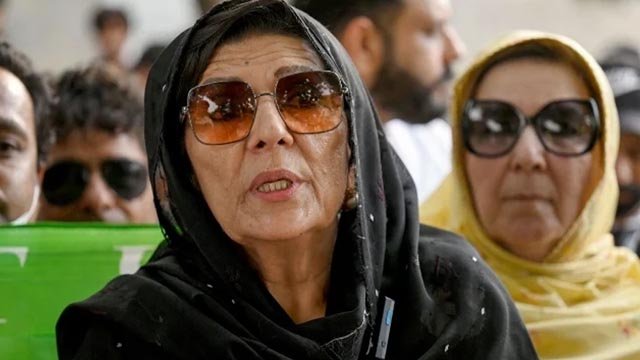Following a recent Supreme Court ruling that invalidated amendments made to anti-graft laws, the National Accountability Bureau (NAB) has decided in principle to reopen corruption cases involving prominent politicians, as reported by The News on Thursday.
On September 15, a three-member bench of the apex court, with a majority 2-1 verdict, upheld Pakistan Tehreek-e-Insaf (PTI) Chairman Imran Khan’s petition challenging amendments made to the country’s accountability laws during the tenure of the previous Pakistan Democratic Movement (PDM)-led government.
Led by the then-Chief Justice of Pakistan, Umar Ata Bandial, the bench ordered the reinstatement of all corruption cases valued at less than Rs500 million that had been closed against political leaders and public office holders. They also declared the previously introduced amendments as void.
In accordance with the Supreme Court’s ruling, the anti-corruption watchdog penned a letter to the registrar of an accountability court in the federal capital.
NAB Chairman Lt-Gen (retd) Nazir Ahmed Butt convened a consultative meeting last week to chart out the future course of action.
NAB is expected to submit records of all cases to the courts within the next two days for resumption of hearings. These cases will involve former prime ministers Nawaz Sharif, Yousuf Raza Gillani, Raja Pervez Ashraf, Shehbaz Sharif, Shahid Khaqan Abbasi, former president Asif Ali Zardari, former chief ministers of Sindh and Punjab, along with dozens of former federal and provincial ministers.
Sources revealed that NAB has been diligently reviewing cases that were previously closed and is currently compiling records of cases at various stages of complaint verification, inquiries, and investigations.
Regional offices of NAB in Rawalpindi, Lahore, Multan, Sukkur, Karachi, Peshawar, and Quetta are meticulously assembling comprehensive data on these cases, which will subsequently be submitted to the accountability courts. Sources emphasized that NAB is committed to fulfilling its obligations following legal consultations, in accordance with the Supreme Court’s decision regarding the NAB amendments.
Furthermore, sources noted that corruption cases against Asif Ali Zardari related to fake accounts and cases against Raja Pervez Ashraf concerning rental power plants have also been reopened. Investigations into Toshakhana vehicles cases involving Zardari, Nawaz Sharif, and Yousuf Raza Gillani will also be revisited.
Additional politicians who may face legal proceedings include former Sindh Chief Minister Murad Ali Shah, former Finance Minister Miftah Ismail, and former Finance Minister Senator Ishaq Dar for alleged accumulation of assets beyond known sources of income.
The NAB amendments not only reduced the term of the NAB chairman and the bureau’s prosecutor general from four years to three years but also removed all regulatory bodies in the country from NAB’s jurisdiction. Additionally, the changes imposed a three-year term for judges of the accountability courts and mandated that cases be resolved within one year.
Challenging these amendments, Imran Khan approached the Supreme Court, arguing that they were unconstitutional. His petition contended that amendments to several sections of the NAB law, including Sections 2, 4, 5, 6, 25, and 26, along with amendments to Sections 14, 15, 21, and 23, were in violation of the Constitution. The PTI Chairman also argued that these amendments contravened fundamental rights enshrined in Articles 9, 14, 19, 24, and 25. He requested that all these amendments in the NAB law be declared null and void.
To address Khan’s plea, a special three-member bench was constituted on July 15, 2022. The initial hearing of the case challenging the NAB amendments took place on July 19, 2022, following the submission of an application (184/3) against the NAB amendments by Khan’s lawyer, Khawaja Haris. Both the federal government and NAB were included as parties in the petition.










